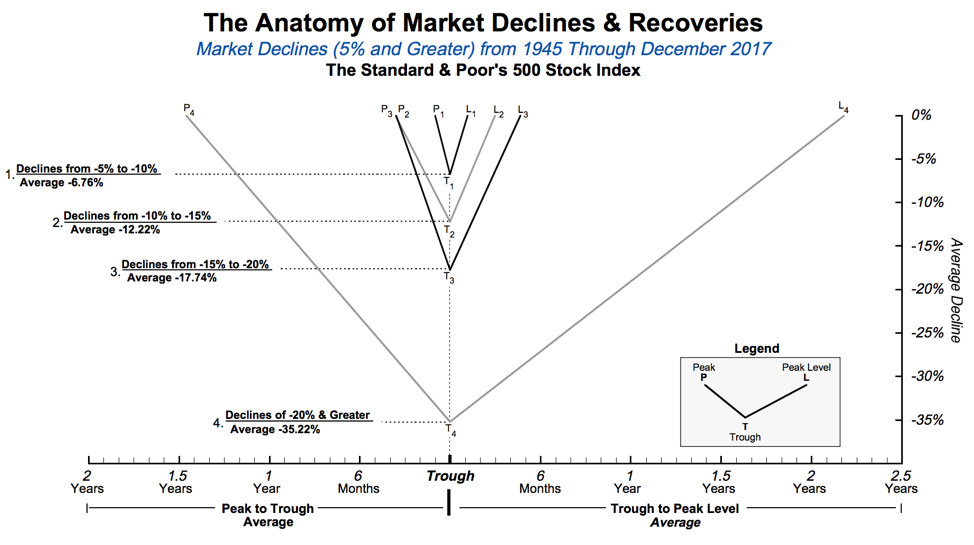
When Markets Fall, Do This
In a matter of four weeks, the global stock market has dropped by about 10%. Should you be worried?
Sam, one of our clients, called me the other day. He is typically calm, rational and not afraid of opportunities. But he sounded tense. He just saw his accounts drop in value in the thousands. He urged me to “sell everything to cash” and “wait until the market stabilizes.” Is this the right course of action?
Fight or Flight
When we perceive danger, the region of our brain called amygdala gets activated. We experience fear and we want to make a run for it. So Sam’s reaction is normal. But what if the perceived threat is not really a threat?
The good thing is the amygdala is partnered with another region in our brain called the prefrontal cortex. It is responsible for rational decision making. So let’s activate our prefrontal cortex by looking at the data on stock market downturns.
What Goes Down Must Continue To Go Down?
As humans, we tend to see patterns in everything. We see faces in Mars and in the clouds, and believe in a hot hand in basketball.
We typically project into the future, the trend we are currently seeing. This is a behavioral bias called Trend-Chasing Bias. When we see that the stock price of Amazon has been going up for years, we think it will likely continue to go up!
But it actually went down after this peak.
When we see the Dow Jones tumbling for the last four weeks, we think it will fall into the abyss. But will it?
On Average, Stock Market Declines Recover in 3.5 Years
I repeat. On the average, it has taken about 3.5 years for the U.S. stock market to recover, from peak to trough to peak. This is based on a study by Crandall, Pierce & Company (2018).
It could recover faster, or slower. The longest recovery I believe took about 16 years. But still, if this money is for retirement, and it is 20 or more years away, then you can ride out these fluctuations.
In early 2016, a global stock market correction occurred, due to fears of a slowdown in the Chinese economy. Markets dropped by about 15%. It recovered in two months.
Most of us experienced the Great Recession of 2008. Global markets tanked by about 40%. It recovered in two years.
Fight, Not Flight
By now, we can all see that it would be detrimental to our retirement portfolio if we let our amygdala take control of our actions. One our clients shared with me that she sold her stock holdings in late 2008, avoiding further losses. But she never invested it back in the market, thus missing the opportunity to double her money in a few years.
The best course of action may be to rebalance your portfolio. This typically involves selling bonds (which normally holds in value during a crash) and buying stocks (while it is selling at a bargain). Studies show that regular rebalancing increases your return over time.
Make sure your retirement portfolio is invested in a diversified manner, in a way that is appropriate to your risk tolerance. Better yet, work with an experienced, credentialed financial planner to make sure you are being smart with your money.



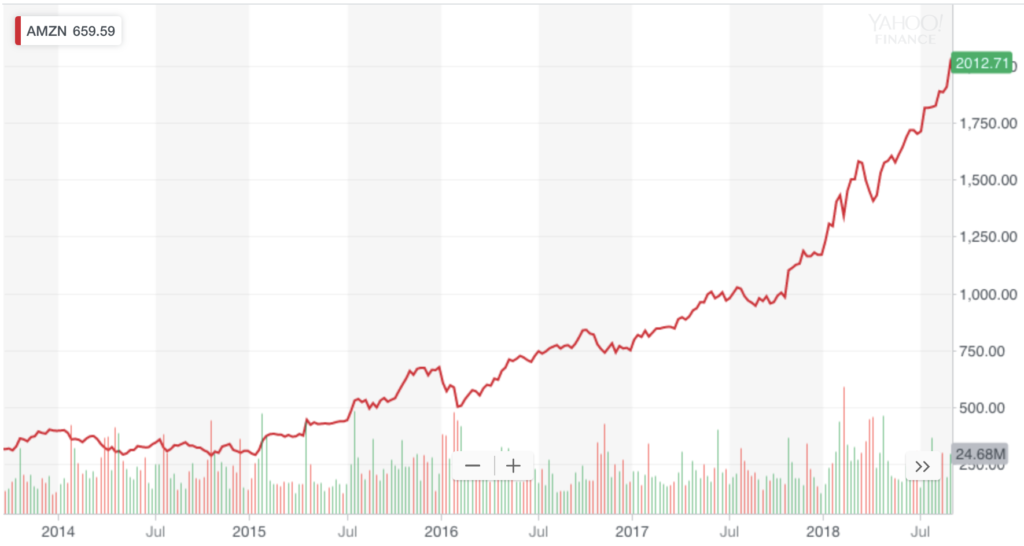
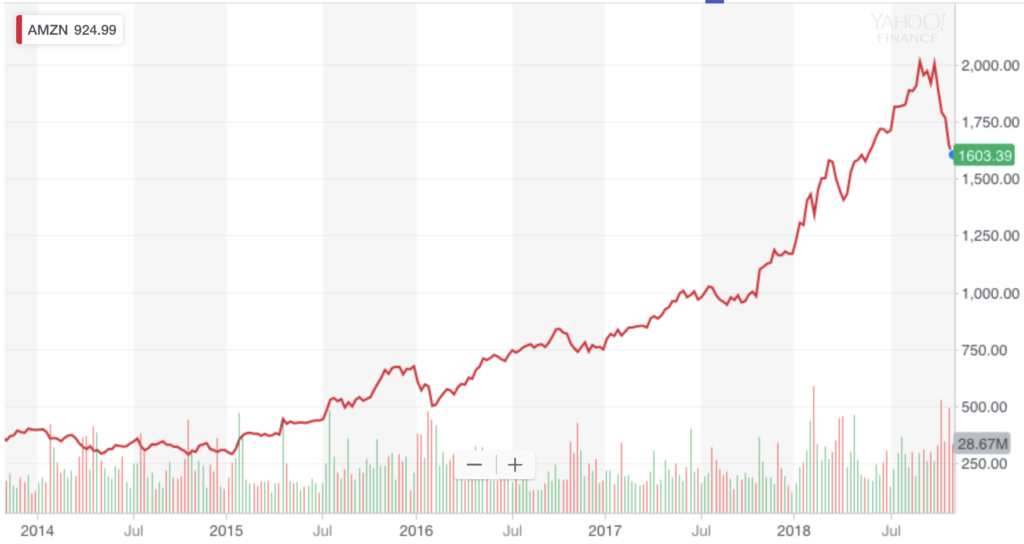
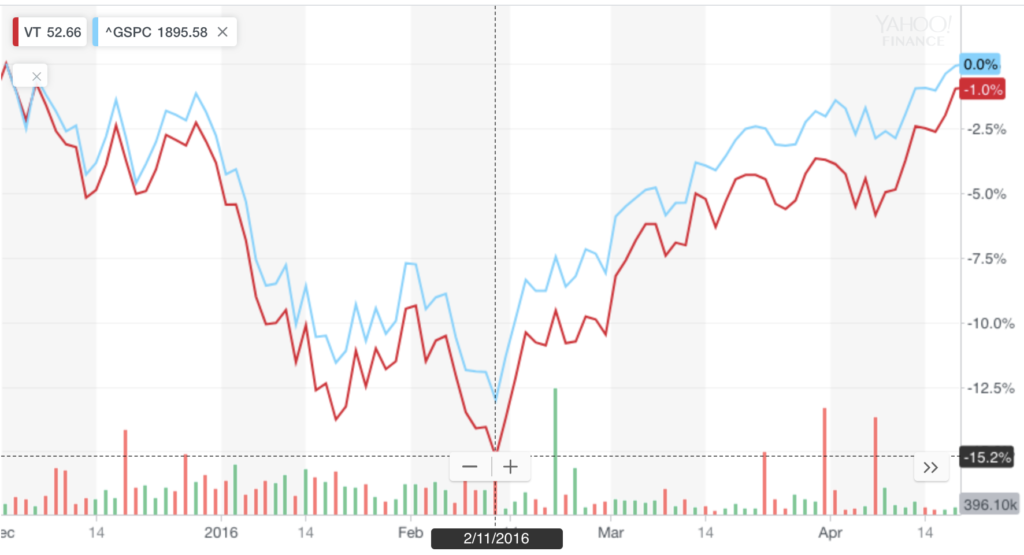
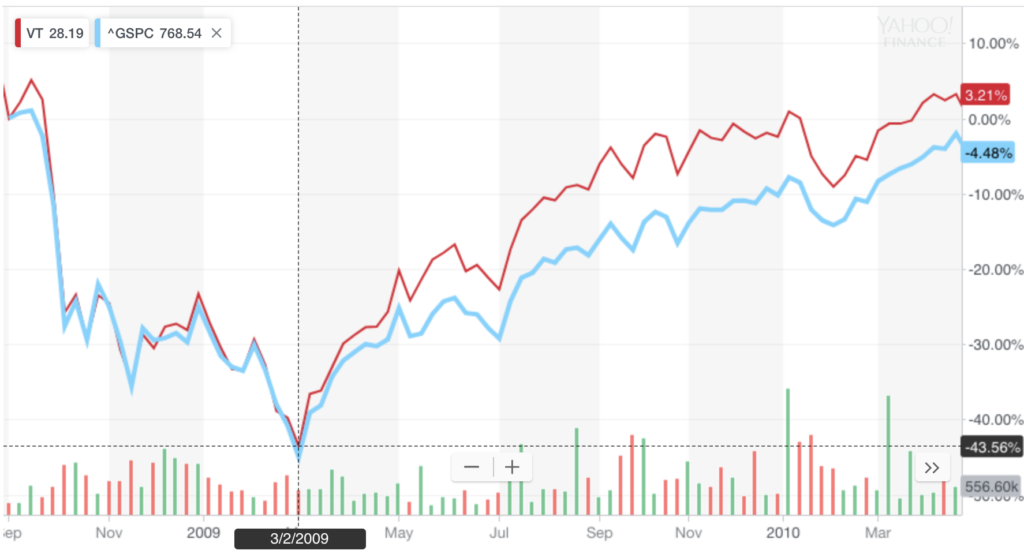
Engage us on Facebook
Follow us on Twitter
Tweets by @mymcmedia